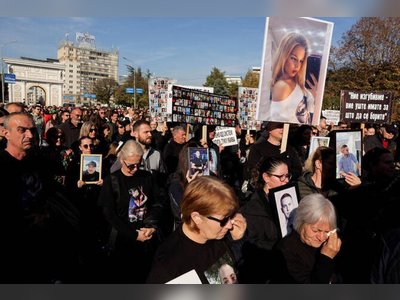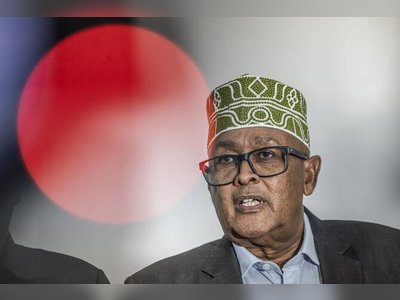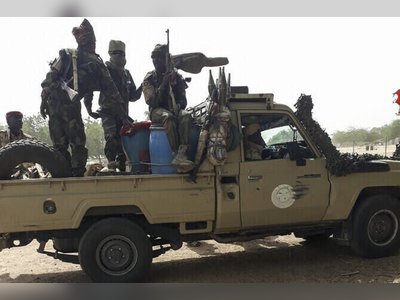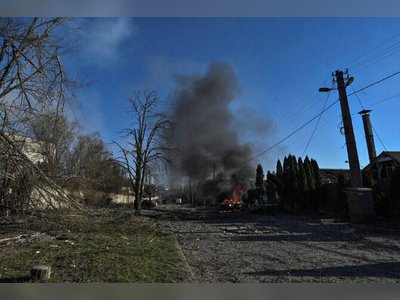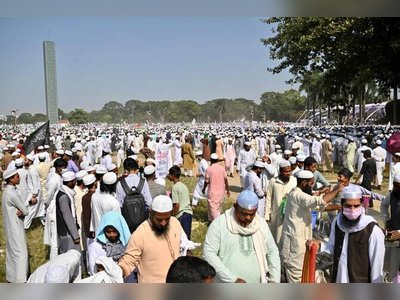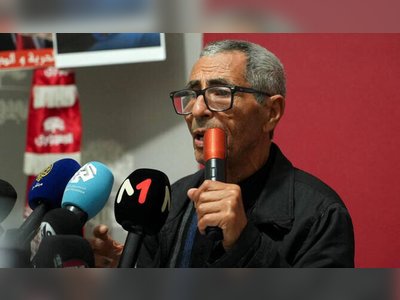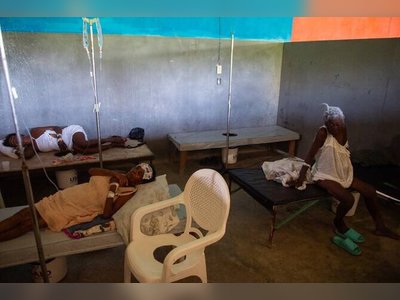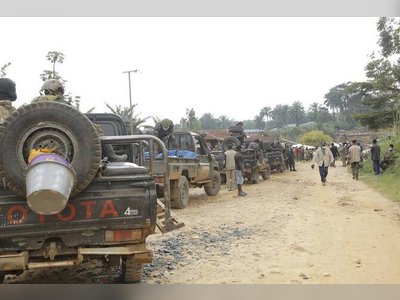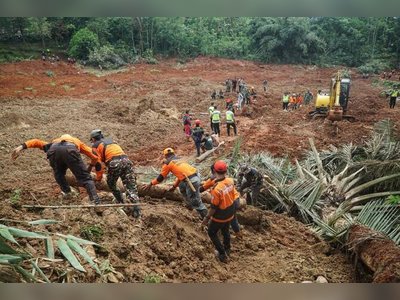
Chile's Presidential Race Shifts to the Right Amid Fears of Migration and Crime
Rising concerns over immigration and crime have pushed Chile's presidential candidates to adopt increasingly right-wing policies.
In Santiago, Chile, the final campaign event for Johannes Kaiser, a radical libertarian gaining traction before Sunday's presidential election, saw crowds expressing visceral rage at immigrants.
The rally, which featured red, white, and blue flags and MAGA-style caps, bore a striking resemblance to a Trump event.
Kaiser, along with other candidates, has shifted focus towards stricter immigration policies as fears of uncontrolled migration grow in Chile.
Chile's political landscape is experiencing a significant shift as transnational gangs have surged across borders from crisis-stricken countries like Venezuela.
The anti-immigrant backlash has transformed the nation that just four years ago elected President Gabriel Boric, a millennial protest leader who vowed to "bury neoliberalism" after social upheaval in 2019.
The current election sees heightened nativist fears giving ultraconservative lawyer José Antonio Kast a better chance of winning.
Even if he doesn't secure the 50 percent needed for an outright victory in Sunday's first round, polls suggest he'll likely face off against Jeannette Jara of the Communist Party in a Dec. 14 runoff.
Chile's presidential contenders have proposed anti-immigrant measures inspired by Trump and El Salvador’s president, Nayib Bukele.
The Communist candidate, Jara, has also emphasized law-and-order policies, promising to build prisons and deploy armed forces to Chile's borders.
Both candidates have focused on immigration as a top priority, with Kast advocating for the deportation of tens of thousands of people and the construction of a border wall.
The concerns over migration and crime have overshadowed other issues such as economic models and social inequality in Chile’s presidential race.
Rights groups warn that the incendiary rhetoric is already fueling real violence against undocumented immigrants, who primarily come from countries like Venezuela fleeing political persecution and economic collapse.
The rally, which featured red, white, and blue flags and MAGA-style caps, bore a striking resemblance to a Trump event.
Kaiser, along with other candidates, has shifted focus towards stricter immigration policies as fears of uncontrolled migration grow in Chile.
Chile's political landscape is experiencing a significant shift as transnational gangs have surged across borders from crisis-stricken countries like Venezuela.
The anti-immigrant backlash has transformed the nation that just four years ago elected President Gabriel Boric, a millennial protest leader who vowed to "bury neoliberalism" after social upheaval in 2019.
The current election sees heightened nativist fears giving ultraconservative lawyer José Antonio Kast a better chance of winning.
Even if he doesn't secure the 50 percent needed for an outright victory in Sunday's first round, polls suggest he'll likely face off against Jeannette Jara of the Communist Party in a Dec. 14 runoff.
Chile's presidential contenders have proposed anti-immigrant measures inspired by Trump and El Salvador’s president, Nayib Bukele.
The Communist candidate, Jara, has also emphasized law-and-order policies, promising to build prisons and deploy armed forces to Chile's borders.
Both candidates have focused on immigration as a top priority, with Kast advocating for the deportation of tens of thousands of people and the construction of a border wall.
The concerns over migration and crime have overshadowed other issues such as economic models and social inequality in Chile’s presidential race.
Rights groups warn that the incendiary rhetoric is already fueling real violence against undocumented immigrants, who primarily come from countries like Venezuela fleeing political persecution and economic collapse.
